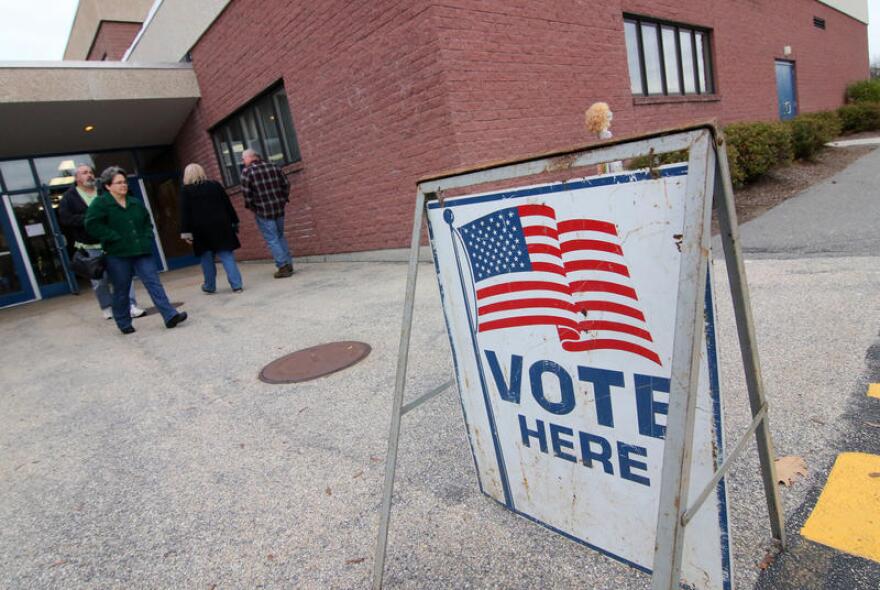The New Hampshire Attorney General’s office has charged two Hampton residents for allegedly voting in both New Hampshire and Massachusetts during the 2016 general election. But the couple involved say it was all just an "honest mistake" and they were blindsided by a barrage of media calls after the charges were announced.
The state says 71-year-old John S. Fleming and 70-year-old Grace Fleming voted absentee in Hampton and in-person in Belchertown, Mass. The pair now face felony charges for knowingly voting in more than one state. According to the Attorney General’s office, each of the charges against the Flemings “carries a maximum penalty of 3 ½-7 years of imprisonment and a $4,000 fine.” If found guilty, they could also lose their right to vote in New Hampshire.
The Flemings will be arraigned in Rockingham County Superior Court on Oct. 5.
Reached by phone on Wednesday afternoon, Grace Fleming said she and her husband were unaware the state was moving forward with the charges. She said they were first contacted by an investigator with the Attorney General's office in June, who asked them to come into the office to answer questions about their voting record. She said they cooperated fully with the investigation, sitting down for an interview and answering multiple follow-up phone calls.
The story they told state officials, Grace Fleming said, goes like this: The Flemings split their time between homes in Hampton, N.H., and Belchertown, Mass., but have historically voted in New Hampshire. They also typically vote absentee because they often travel around the time of the election. At the time of the 2016 election, Grace was recovering from a medical procedure, while her husband was managing their household affairs on his own and taking care of her. In the shuffle of all of that, the couple mailed in their absentee ballots for New Hampshire but also, not remembering they already sent in those ballots, later voted in-person in Belchertown on Election Day.
Along the way, their interactions with the Attorney General's office left them with the impression that the state officials who were interviewing them understood the double voting was unintentional.
?The couple now plans to hire an attorney.
"It was an honest mistake due to medical issues," Grace Fleming said. "That's what it boils down to in a nutshell."
The Attorney General's office has some level of flexibility in how it decides to punish people who have allegedly violated voting laws. For example, before the Flemings' case was announced, the state identified at least four other people who voted illegally in 2016 general election: a widow who mailed an absentee ballot for her husband several days after he died, a man who admitted to voting in two towns during multiple elections, and two people who voted in Dixville Notch but no longer live there. None of those cases resulted in criminal penalties; instead, the state let each person off with a fine or a stern warning not to repeat the mistakes again.
The Flemings' case, in contrast, was sent to a grand jury. The Attorney General's office declined to comment on the factors that led this case to be handled differently than the other wrongful voting cases from 2016, citing an open investigation.
The Flemings' case is the first time New Hampshire has charged someone for double voting as a result of an investigation that was prompted by the Interstate Voter Crosscheck Program.
New Hampshire joined the program — which has been championed by Kansas Secretary of State Kris Kobach, the former head of the Trump administration’s Presidential Commission on Election Integrity — in 2016. It has come under scrutiny for its data security procedures as well as its efficiency, since it only flags matches based on voters’ names and dates of birth.
According to a presentation given by top state election officials earlier this year, New Hampshire initially identified 94,610 possible matches through Crosscheck. A yearlong follow-up effort by the Secretary of State’s office ruled out fraud in 99 percent of those cases, leaving 142 matches that were still “under examination” as of May.
The Attorney General’s office says additional investigation into the Crosscheck matches identified by the Secretary of State’s office “remains active and ongoing.”








